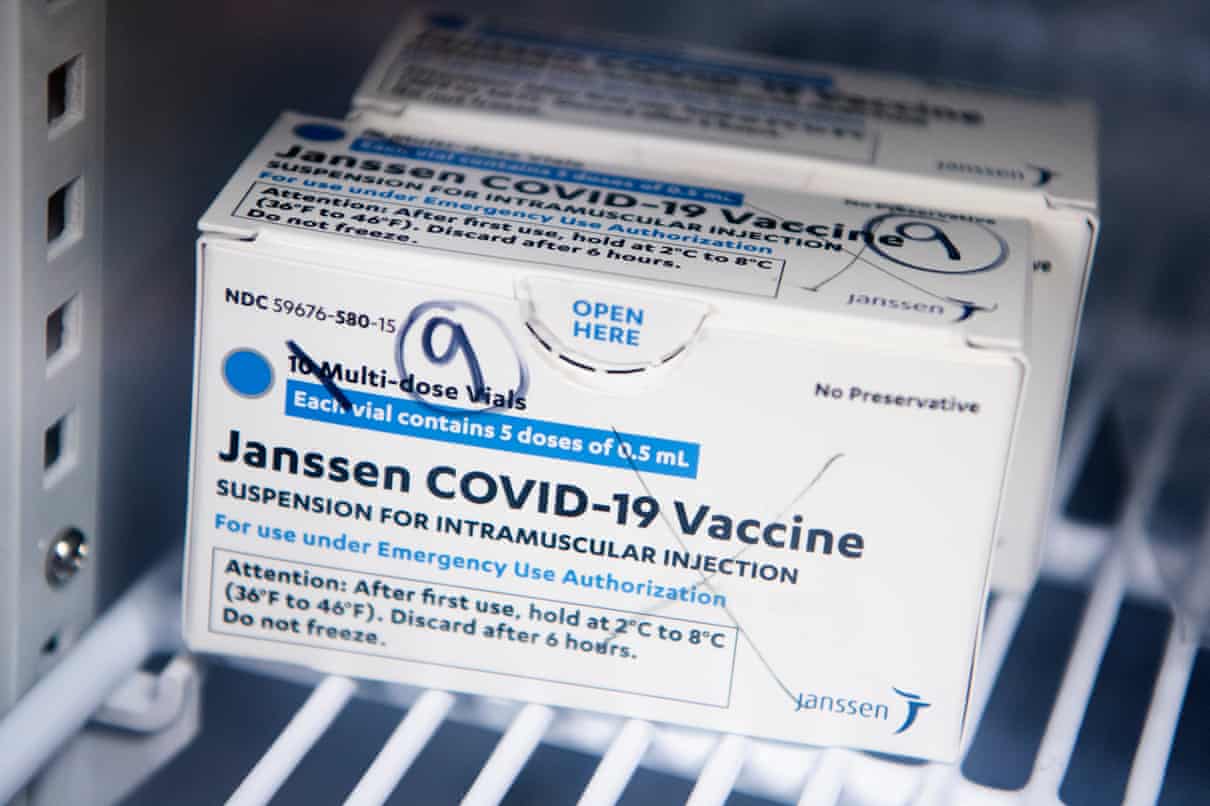Johnson & Johnson Covid vaccine to be paused in US over blood clots
US health agencies have recommended states pause the administration of the Johnson & Johnson coronavirus vaccine, after reports of rare and severe blood clots emerged in six women. More than 6.8m doses have been administered nationally.
The concerns mirror those of drugs agencies in Europe and Australia over the AstraZeneca vaccine, which has not been authorized in the US. There have been no significant safety concerns raised about the two other vaccines that make up the majority of US supply, from Pfizer-BioNTech and Moderna.
The acting FDA chief, Janet Woodcock, said: “We’re recommending this pause while we work together to full understand these events.” The decision was taken in coordination with the CDC.
Woodcock said: “Right now, I’d like to stress these events appear to be extremely rare. However, Covid-19 vaccine safety is a top priority for the federal government. We take all reports of adverse events related to the vaccine very seriously.”
The FDA and CDC said in a joint statement: “People who have received the J&J vaccine who develop severe headache, abdominal pain, leg pain, or shortness of breath within three weeks after vaccination should contact their healthcare provider.”
Officials with both agencies said the events occurred between one and two weeks after the vaccine was administered, past the stage when many people might experience common, flu-like symptoms associated with the vaccine.
Officials said people who received the vaccine more than one month ago should consider their risk “very low”.
Anne Schuchat, the deputy principal director of the CDC, said she understood many Americans who had already received the vaccine were “probably very concerned” but emphasized the syndrome associated with the vaccine was exceedingly rare.
Nevertheless, “it was clear to us we needed to alert the public,” Schuchat said. Officials are also expecting to discover more cases in the coming days, as clinicians realize the potential link to recent vaccination.
Officials also warned clinicians to be on the lookout for the rare syndrome, as using a common treatment for blood clots – the blood thinner heparin – could be “dangerous” and worsen the syndrome.
All six cases of the clotting disorder were women were between the ages of 18 and 48. One woman died, and a woman in Nebraska is hospitalized in critical care, according to the New York Times. Johnson & Johnson’s vaccine is also under scrutiny by the European Medicines Agency, which is investigating four cases of clotting.
Health agencies said the blood clotting concern is “extremely rare”. Authorities are still investigating whether the clotting is indeed caused by the vaccine.
The background rate of similar clotting disorders is between two and 14 people per million. However, the presence of low platelet count in conjunction with the clotting makes the syndrome remarkably similar to clotting seen with the AstraZeneca vaccine.
As of 4 April, there have been 222 cases of blood clots among the more than 34 million globally who have received the AstraZeneca vaccine. The European Medicines Agency has examined 86 cases of blood clots, 18 of which have been fatal. US officials said they are “in constant contact with regulators worldwide”.
continue reading

